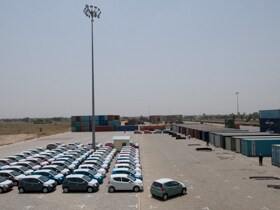
Everybody Loves a Good Fight
A three-way battle has changed the way cars are ferried from the north to the south of India
It began as a fight among cars and ended with the Railways giving a black eye to ships and trucks.
In early 2007, Maruti Suzuki had a problem. It was not able to transport its cars to South India as quickly as it wanted to. Trucks took 10 days to reach the southern market from its Gurgaon factory — a bad thing because customers weren’t willing to wait for more than a week to get their cars delivered.
In a growing market that accounted for 30 percent of its sales, Maruti couldn’t afford to let this situation continue. Worse, this system was indirectly helping its rivals Hyundai and Ford. These companies, with factories in Chennai, would simply load their cars in the trucks that were returning after delivering Maruti cars. Thus, they could send their cars to the northern market at dirt-cheap rates. Maruti managers were perplexed.
It was then that the upstart Mundra Port and Shreyas Shipping came into the picture. This port-shipping company combine saw a business opportunity in Maruti’s dilemma. They proposed that Maruti give up the road route to transport its cars and try the sea route instead. They promised to deliver the cars to a southern port within six days.
Maruti decided to try it out. “Costs were almost the same as road but it helped us meet our targets,” says M.M. Singh, managing executive officer (production). In July 2007, Maruti switched over to ships on an experimental basis. Car consignments were taken to Mundra from Gurgaon and then shipped to Kochi. From Kochi, they were transported to dealerships all over South India. It worked like a dream and Maruti started moving a substantial chunk of the consignments through ships. Then suddenly in the middle of 2008, the economic slowdown took hold. Old calculations were no longer relevant and cash was tight.
To add to the woes, Shreyas raised its freight rates in October. Another problem surfaced. Consignments started getting delayed and instead of five-six days, cars were getting to dealerships in eight-nine days.
“Soon we started facing problems with infrastructure availability at ports. So, the cost viability of the total project, availability of containers, ports and ships wasn’t working out,” adds Singh. Shreyas Shipping says it did its job but the special category of vessels required for car transport (called roll-on roll-out or RoRo vessels) was expensive and they had to cover the costs.
Maruti began looking for alternatives. The railway route was a possibility. The state-run Container Corporation of India (Concor) pitched to Maruti the idea of hauling cars in containers and ferrying them on trains. Maruti bought it and is now using Concor’s container trains to transport cars from Rewri, Haryana to Chennai. It takes a maximum of five-six days for the cars to reach their last stop.
In the next couple of years, the market size for cars in India could touch 3 million units. That’s a lot of business. This little battle for the pie in South India has shown how efficiency is becoming crucial in logistics. Everyone wants to get a piece of the business. Concor is now wooing Hyundai. Shreyas Shipping is shopping for RoRo vessels.
(This story appears in the 30 November, -0001 issue of Forbes India. To visit our Archives, click here.)





